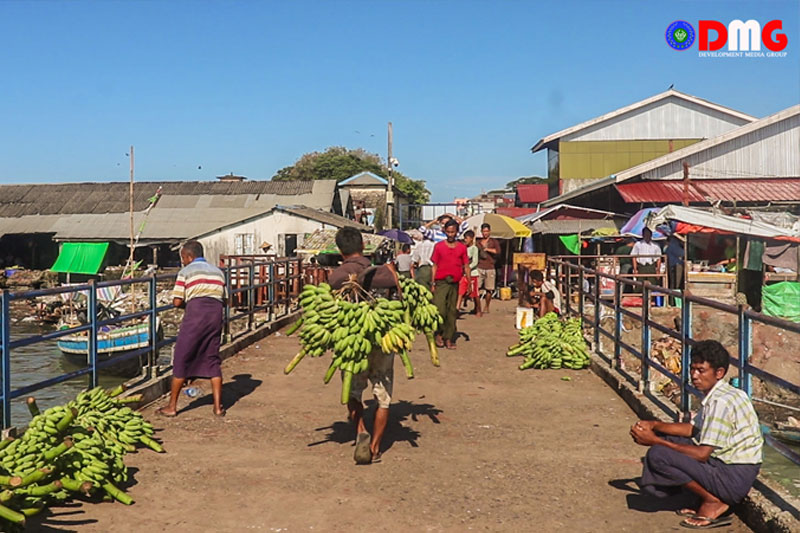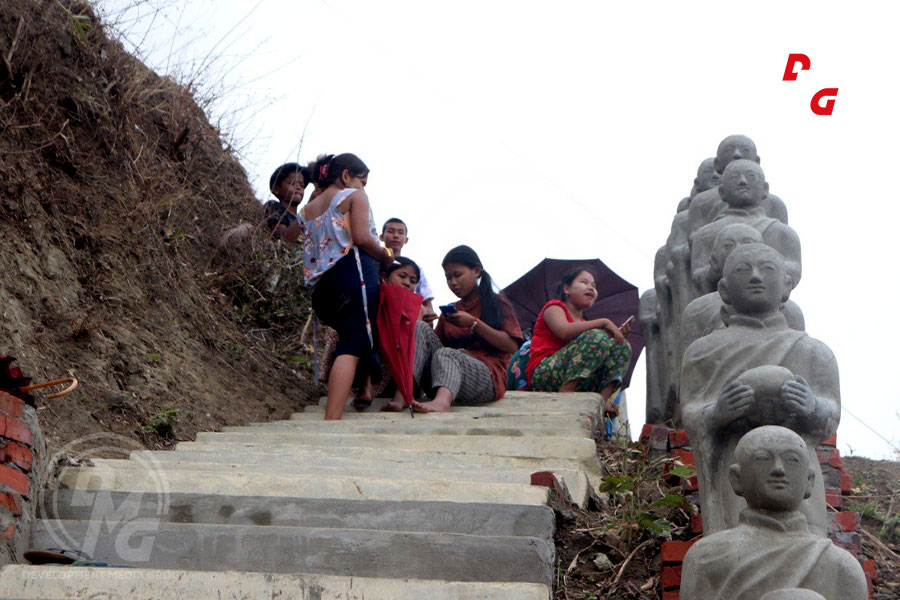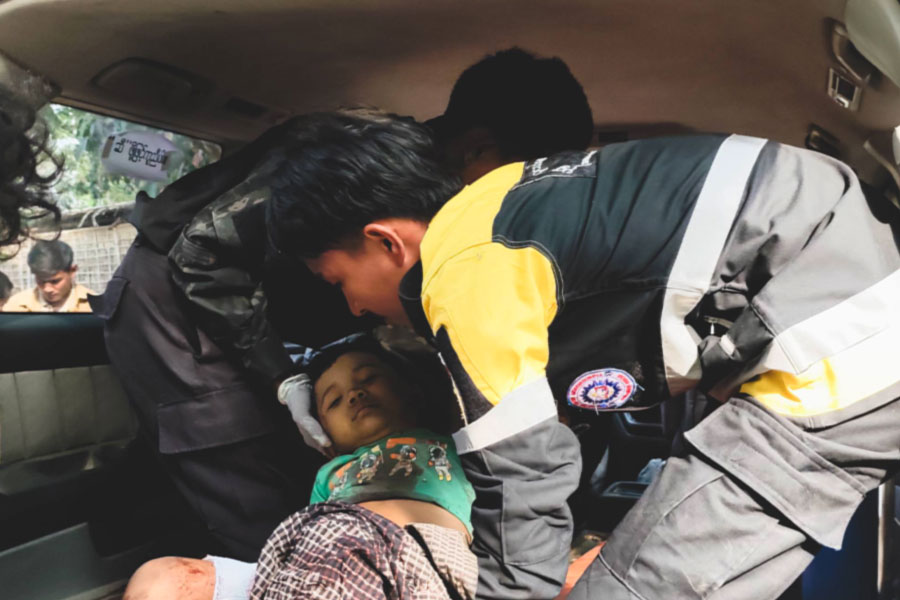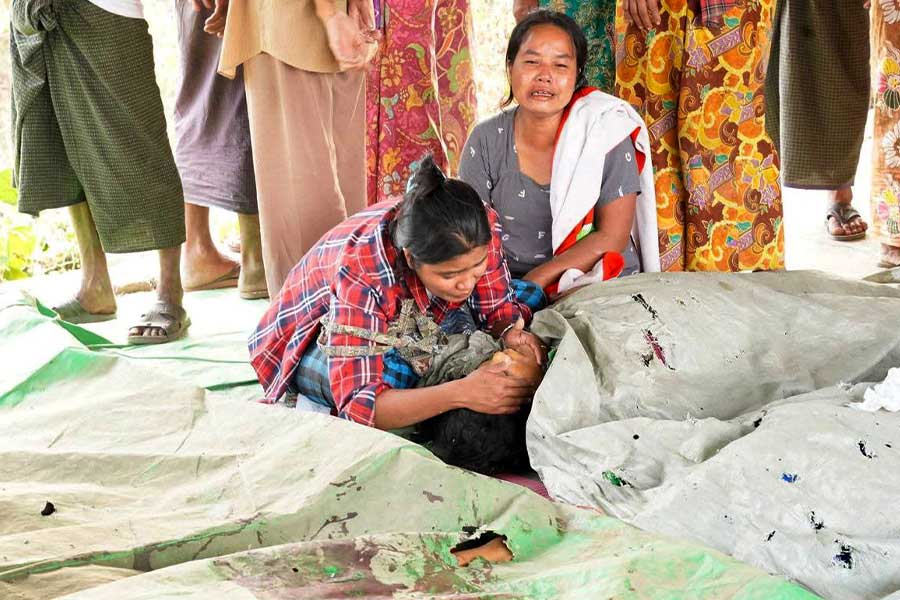- Arakan Army signals willingness to forge strategic partnership with Bangladesh’s new government
- Internet blackout in Arakan State hampers emergency aid delivery
- Arakan residents call for air raid warning systems amid surge in junta airstrikes
- Arakan’s Breathing Space (or) Mizoram–Arakan Trade and Business
- Death toll rises to 18 after junta airstrike on Ponnagyun village market
Health risks accompany high temperatures, medical experts note
The Department of Meteorology and Hydrology (DMH) has announced that temperature averages may rise across central Myanmar as well as in some peripheral states during the coming hot season.
19 Apr 2023

DMG Newsroom
19 April 2023, Sittwe
The Department of Meteorology and Hydrology (DMH) has announced that temperature averages may rise across central Myanmar as well as in some peripheral states during the coming hot season.
The average temperature in Arakan State during the summer is 34 degrees Celsius, with the average temperature in Kyauktaw and Mrauk-U at 40 degrees Celsius, and the temperature of Sittwe and Kyaukphyu at 38 degrees Celsius, according to U Hla Tun, deputy director of the DMH.
People need to take extra care of their health due to the rising temperatures during the summer months, he said.
Doctors warn that prolonged exposure to high temperature could result in nervous system damage, dehydration, diarrhoea, urinary retention, fatigue, unconsciousness and heatstroke, some of which can be life-threatening.
“When the weather is hot like this, you need to sweat. If you don’t sweat at all when other people are sweating, you need to be careful. Since the body does not sweat, it cannot cool down. So, if you don’t sweat, amyloid accumulates inside the body, which affects the nervous system,” said Dr. Kyaw Min, a doctor in Sittwe.
Doctors advise drinking plenty of water, wearing breathable clothing, drinking electrolytes supplements, and eating juicy fruits to combat the effects of high temperatures on the body.
“If you don’t sweat, you should consult a doctor. If one part of the body doesn’t sweat, you can take care of it, but if the whole body is not sweating, it can affect your health more over time. If you lose consciousness due to heatstroke, you should immediately go to the doctor,” said Dr. Kyaw Min.
The Department of Health issued a statement warning that the elderly, children, pregnant and lactating mothers, people with chronic diseases and obese people may be more affected by the hot weather.
The statement went on to say people suffering from heat stroke should be placed in a cool, well-ventilated place, and cold water should be applied to their forehead, neck and armpits to reduce the body temperature of the patient.

















.jpg)